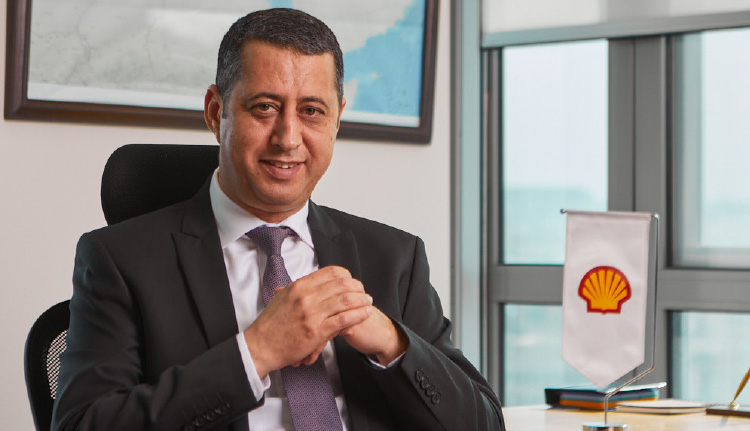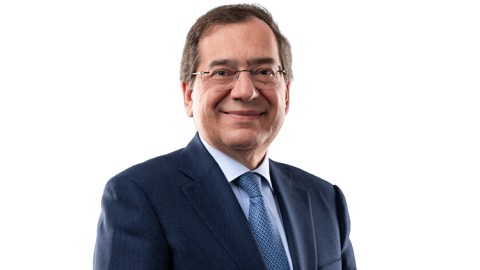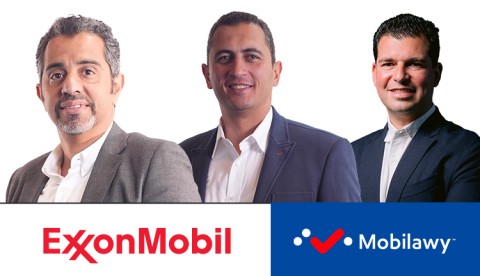What is Shell’s view on the global climate change issue?
An unprecedented collaboration between industry, consumers, and governments is vital if the world is to meet the more ambitious goal of the UN Paris Agreement and limit global warming to 1.5°C.
Tackling climate change is an urgent challenge. But only a transformation of the global economy, and the energy system that supports it, will stop the world from adding to the total amount of greenhouse gases in the atmosphere, achieving what is known as net-zero emissions.
For our part, Shell has set a target to become a net-zero emissions energy business by 2050.
We have set our net-zero target, and our short-and medium-term carbon intensity targets, so that they are consistent with the more ambitious goal of the UN Paris Agreement.
By achieving our climate target, we will contribute to a net-zero world, where society stops adding to the total amount of greenhouse gas emissions in the atmosphere.
To help step up the pace of change, in October 2021, we set a complementary absolute emissions target, for emissions under our operational control.
What’s the role of gas in this?
Gas currently meets a quarter of the world’s energy needs. It heats and cools industries, homes and businesses; it fuels trucks and ships as an alternative to diesel, and heavy fuel oil; it generates electricity; and it goes into many everyday essentials because gas is also used as feedstock for key industries such as fertilizers, plastics, and fabrics. When compared to alternatives such as coal, it is a lower-emission energy option that is available at scale and serves both energy security and energy transition, two of the most fundamental challenges facing society today.
When gas cannot be transmitted through pipelines, it can be cooled down to a liquid and transported on ships as liquefied natural gas (LNG). The development of LNG-enabled gas to become an internationally traded commodity ensures that today LNG plays a significant role in developing new markets for gas and supporting the switch to gas in more coal-intensive energy systems. Shell has been a pioneer in LNG for more than 50 years.
Today, Shell is a leading LNG trader, delivering cargoes to more than 25 countries. In 2021, we sold 64 million tonnes of LNG, enough to meet Canada’s entire annual gas demand.
But gas itself needs to be decarbonized using technological innovations. This includes both the reduction of the carbon intensity of gas and increasing the focus on transparency and measurement, reporting and verification of associated emissions, to ensure that customers and wider society have confidence in the industry’s efforts to decarbonize.
These efforts need to happen across the value chain, from production to end consumption. This requires collaboration across stakeholders – governments, policymakers, energy producers and suppliers, and energy consumers. Shell advocates for government policies that require abatement of carbon emissions, such as through carbon capture and storage (CCS) and the reduction and elimination of methane emissions. Shell is at the forefront of global efforts to reduce methane emissions, both through the actions we are taking in our own operations and our leadership in industry and civil society coalitions such as the Methane Guiding Principles. Shell has committed to implementing the Oil and Gas Methane Partnership (OGMP) 2.0 program for improving methane data credibility for Shell-operated ventures by the end of 2023 and to use reasonable endeavors to influence NOVs (Non-Operated Ventures) towards achieving the same standard by the end of 2025. CCS and lower-carbon gases are also fundamental to Shell’s Powering Progress Strategy and crucial in helping us achieve our target of becoming a net-zero emissions energy business by 2050.
How did COP27 help achieve such climate ambitions?
The COP27 was an opportunity for governments and policymakers to further step up their climate ambitions and define how they will transform these ambitions into action, as they lower emissions and prepare for the impact of climate change, including the allocation of finance.
Given that the Conference of Parties to the UNFCCC 27th annual meeting (COP27) took place in Sharm El-Sheikh last year against the backdrop of a global energy and cost of living crisis, security of supply and affordability must be balanced with the urgent need for investments in a lower-carbon energy system.
Building on the outcomes of the previous conferences, COP27 had a strong focus on implementation; translating these outcomes previously agreed by governments into policies and actions to mitigate climate change and its impacts.
The Egyptian COP Presidency dedicated a key thematic day (Decarbonization Day) to focus on emissions reduction; scaling up climate change adaptation efforts and shaping a global goal on adaptation; and the required financing. It also recognized the need for the energy transition to be fair and equitable – a ‘just transition’. This COP had a strong focus on Africa, where Shell’s activities include strengthening our gas business; offering solar power solutions to businesses; and investing in natural ecosystems.
How can Shell support this vision?
Shell supports strengthened Nationally Determined Contributions (NDCs) – climate action plans to cut emissions and adapt to climate impacts – bold policies and regulations that both encourage companies to move ahead in providing low-carbon energy supply and provide economic incentives to build demand for low-carbon energy. These policies should:
support energies and innovative technologies – such as decarbonized hydrogen, advanced biofuels and carbon capture, utilization and storage (CCUS) – that will help cut emissions from sectors that cannot easily run on electricity; accelerate and synchronize the supply and demand of low-carbon energy, along with the equipment to deliver and use it;
support the development of international carbon markets and provide clarity on the intended use of Article 6; reduce methane emissions throughout the natural gas supply chain through direct regulations, such as performance standards based on robust monitoring, reporting, and verification frameworks; ensure the transition is inclusive and distributed in a fair way.
How can Shell support Egypt’s decarbonization ambition?
Shell has a history of over 110 years In Egypt. Over decades the company developed a strategic partnership with Egypt and continuously supported the country monetize its natural resources throughout our involvement in the full value chain of the oil and gas business: upstream, midstream and downstream. Egypt has set itself a very ambitious energy transition target as part of its national vision and this proved immensely compatible with the direction of Shell, where energy transition is at the forefront of our priorities.
Shell has already embarked on its energy transition journey in Egypt a few years back. But this Is gaining traction thanks to the country’s growing interest in implementing decarbonization efforts, starting with the Oil & Gas sector.
Shell Egypt, together with EGAS and Petronas are collaborating with a Bechtel-led coalition that includes Enppi and Petrojet to study a proposed unified power system between West Delta Deep Marine (WDDM) and Egyptian LNG (ELNG). The FEED is set to explore the benefits of a One Power Hub concept, integrating the electrical power systems at the WDDM and ELNG, as opposed to having two separate systems. The study outcomes are currently being analyzed.
Over the past few years, we have been working on optimizing the performance of our joint ventures (Rashpetco and ELNG) through asset integrity and process safety processes. We have also implanted Zero Routine Flaring for both ELNG and Rashpetco, something we are very proud to have achieved.
We also signed Heads of Agreement with EGAS to set up a Greenhouse Gas (GHG) emissions management framework aimed at managing, and potentially reducing, greenhouse gas emissions from EGAS affiliates. EGAS and Shell are currently collaborating to establish an effective framework to manage Greenhouse Gas emissions through a standardized governing framework that is applicable to all EGAS affiliate companies.
On CCUS, Shell Egypt, in collaboration with SLB, signed a Memorandum of Understanding (MoU) with EGAS to launch a study assessing CCUS potential in the Nile Delta to support the O&G sector in identifying CCUS opportunities, potential reservoirs and scalability. I am pleased to announce that phase one has just been completed, and we are planning to complete phase two soon. If the outcomes are economic, this should place Egypt on the map of CCUS locations, with the outcome of such to act as the sector’s ‘data bank” for CCUS storage locations around the world. This is a great demonstration of how we can support the Government of Egypt with its CCUS regulatory framework.
As you can see, there are multiple opportunities in the pipeline that we truly believe could add to the sector’s decarbonization journey.








